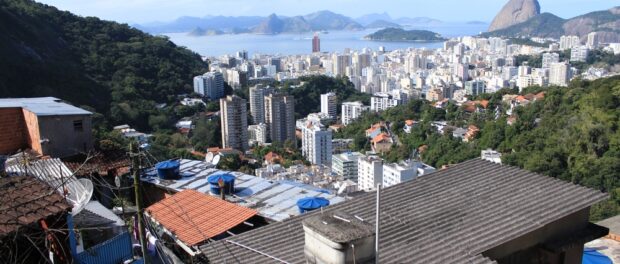
The New Urban Agenda is responsible for establishing the policy frameworks that will guide the governance of the world’s cities for the coming 20 years.
After the release of the New Urban Agenda Zero Draft document in May, each country was given the opportunity to write its own critique and offer suggestions for any additions or revisions. The Brazilian response to the Zero Draft can be found here, and key elements of that response are summarized in this article. Some of those critiques likely influenced the final New Urban Agenda which forms the basis of next week’s Habitat III conference in Quito, Ecuador.
Brazilian experts who contributed to the response were critical of the Zero Draft’s relatively neutral language and were also uncertain whether the document will, or will not, advance the previous promises of the Habitat II conference made in 1996 and revised in 2001. They say a further examination should be undertaken.
The Brazilian response paper states that the current draft “does not fit the reality of exclusion, regression and rights violations lived by populations daily. With this, it does not recognize or show empathy for the many conflicts that pervade this process, like land conflicts, environmental issues and political disputes for public land present in many parts of the world.”
The contributors to this response document say the Zero Draft did not adequately detail the true realities of vulnerable populations. “In the document, the analysis is centered on urban poverty and the treatment of vulnerable populations only in terms of income, leaving out the discussion from the point of view of socio-territorial inequality (like access to services, goods, and opportunities).” Other underdeveloped topics in the document include public security and urban violence, which they view should be expressly mentioned in order to find adequate solutions.
The Brazilian response offers a possible alternative, saying that “their vision” would include “the search for equity, the just distribution of costs and benefits of urbanization, the social function of ownership and property, among others.”
Perhaps the most important part of the Brazilian critique is that it points out a huge contradiction within the Zero Draft that is easily looked over, which is the contradiction between the “Right to the City” and emphasizing competitiveness as a goal for cities. The basic question the Brazilian response asks is: how is it possible to advocate for inclusive and just growth, and also competition, which inherently means promoting losers and winners?
The Brazilian response also says that the Zero Draft incorrectly conflates the “Right to the City” with the “city for all.” The “city for all” they say, has a primary dimension of equality and non-exclusion. The “Right to the City,” however, is a much broader and older concept that views the city as a common good. The “Right to the City” can be used as an approach to human rights and a platform for action, whereas the “city for all” is simply a framework.
The Brazilian response also favors a clearer role for the public sector in the development of cities beyond just public-private partnerships. The document stresses the importance of regulating business and real estate markets and coming up with better ways to distribute the costs and benefits of city construction.
As a whole, the Brazilian critique did not believe the Zero Draft adequately addressed themes like informality, the concentration of property or offered concrete plans about how to regulate these sectors. In line with the Brazilian constitution, the Brazilian response calls for a stronger confirmation of the social function of land and establishing mechanisms for the prevention and mediation of land conflicts.
Additionally, the Brazilian response agrees that a variety of solutions are integral to the success of the New Urban Agenda in areas like housing and that the government should not be the only actor involved. The Zero Draft also talks about the importance of public space; the Brazilian response calls for an affirmation of what public space actually means, in that it is not actually regulated by the government, but open to all. If left too controlled by government, the Brazilians say, there is a risk of repression or “criminalization of diverse expressions of citizenship.”
Finally, the Brazilians were skeptical of the current methods of implementation and believed there should be a panel created to continuously monitor the progress of the New Urban Agenda.
